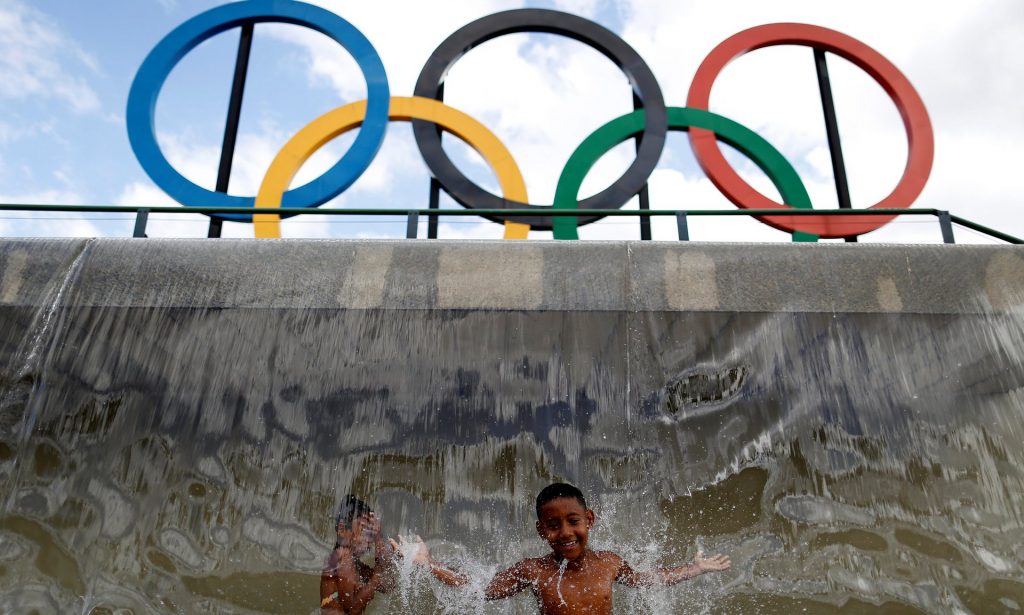
Photograph: Bruno Kelly/Reuters
In August, Rio de Janeiro hosts the first Olympic Games on South American soil. But human rights campaigners have been concerned about the impact of the Games on the Brazilian city’s most vulnerable communities. Residents of Rio’s favelas have spoken of battles against forced evictions, police violence and wasted spending. We asked students to tell us whether the Olympics would be a benefit or a burden to Brazil’s development. Below is a selection of the best responses.
The Games can play the role of stabiliser
Hosting the Olympics is a great chance to integrate the population. It can even become a starting point for people of all social strata to feel involved in something global and noble. That sense of unity can be directed towards reaching national goals, such as education and healthcare. In the case of Brazil, torn by political scandals and turmoil, the Games can play the role of stabiliser.
Nevertheless, sometimes the preparation of such great events cuts across the interests of local communities, which are sometimes deprived of their right to express considerations over policies. Often state media marginalise these groups, maintaining the wall of silence on existing problems. If authorities want to boost their international image by demonstrating an ability to hold great international events and therefore attract investments, the leaders should neither infringe the essential rights of the local population, nor use violence to push people aside to clear the land for logistics.
Hosting the Olympics should not go hand in hand with internal violence. The Games are a great tool of social integration, but they come and go while other issues frequently remain unresolved and even ignored.
Grigoryan Gayk, MGIMO University, Moscow, Russi
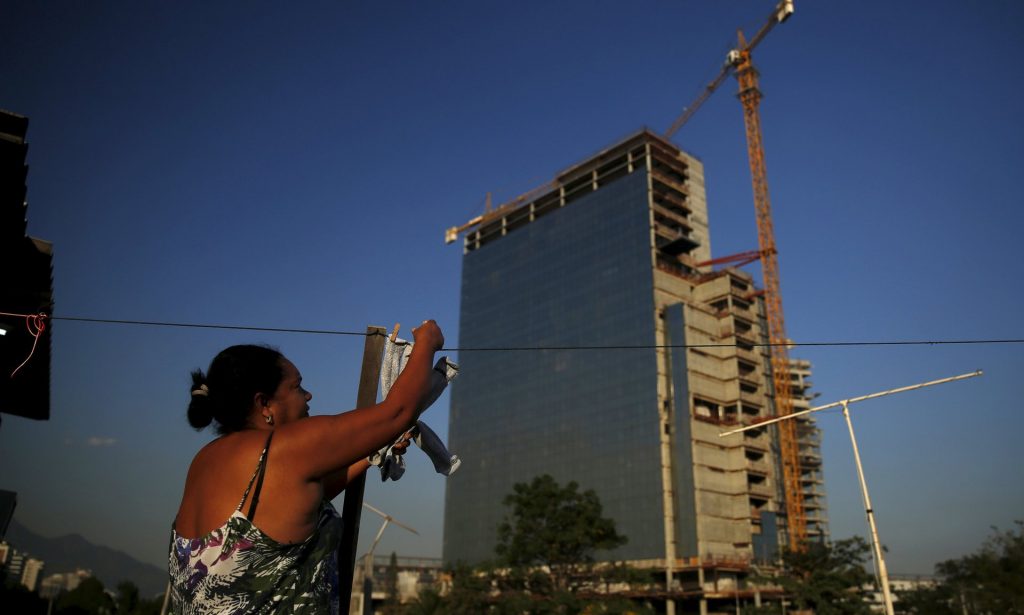
Photograph: Pilar Olivares/Reuters
Rio does not need the Olympics
The Olympic Games is a nightmare for Rio as a city and for the citizens, who suffer [due to] the precarious situation of the education and transport systems, and in particular the health system, where people die from not having medical staff, basic tools for procedures and blood transfusions.
Rio de Janeiro is flooded with projects to revitalise the south zone, central Rio and Barra da Tijuca (where most of the Games are taking place) to create that image of the “Wonderful City” to the international media and tourists. Behind all this, people die in the favelas in the north and west zones in Rio because of police confrontations with drug traffickers. They become just statistics.
The Olympic Games is a dream that became a nightmare. We, from Rio and the favelas, used to watch the Games and dream for it in 2016. This nightmare has come, and meanwhile, our mayor, Eduardo Paes, continues to cite the “Olympic legacy”. The only legacy I see is the blood of the poor people who are removed from their home to build stadiums (like Vila Autódromo), and the blood in the favelas as an attempt to [exert] control during the Games. I see the millions and billions spent on overpriced Olympics construction, which should be spent on education, health and projects for people of the favelas to have opportunities to grow and participate in the development of the whole city.
Rio does not need the Olympics. We need basic things that, unfortunately, are not in the interests of the politicians, who live in Leblon and Ipanema, facing the beach.
Lucas Rodrigues Alves, Escola Superior de Marketing e Propaganda, Rio de Janeiro
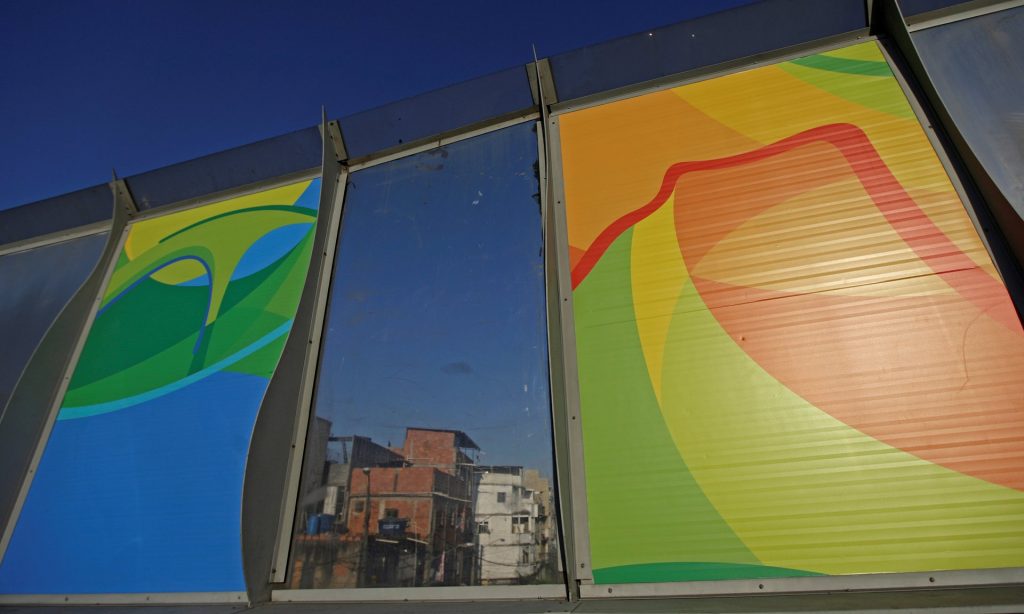
Photograph: Ricardo Moraes/Reuters
The favelas should be celebrated, not hidden away
Before the city secured the bid for the 2016 Olympics, the state’s response focused on upgrading and improving the favelas. Through programmes such as Favela-Bairro, the state seemed to imply that the favelas were part of Rio’s culture and identity and something to be celebrated. However, after the bid was secured in 2009, this changed.
It seems to me that when “more important” issues arise, which can bring wealth and recognition on the world stage, the state’s view on favelas and the poor is that they get in the way. They then get viewed as a hindrance to the vision of a global city and hidden from the media, the visitors to Rio and the rest of the world. It is always the poor who suffer from the inconvenience and expense of making the city a space of aesthetics and wealth.
In the case of Rio, a bourgeois environmentalism attitude is seen as the big players try to create a neat, clean and formal environment, an image the poor do not fit. But the poor communities and favelas should be celebrated – a lot of them are full of businesses that are generating income and contributing to Rio’s economy.
Amy Morris, University of Sheffield, UK
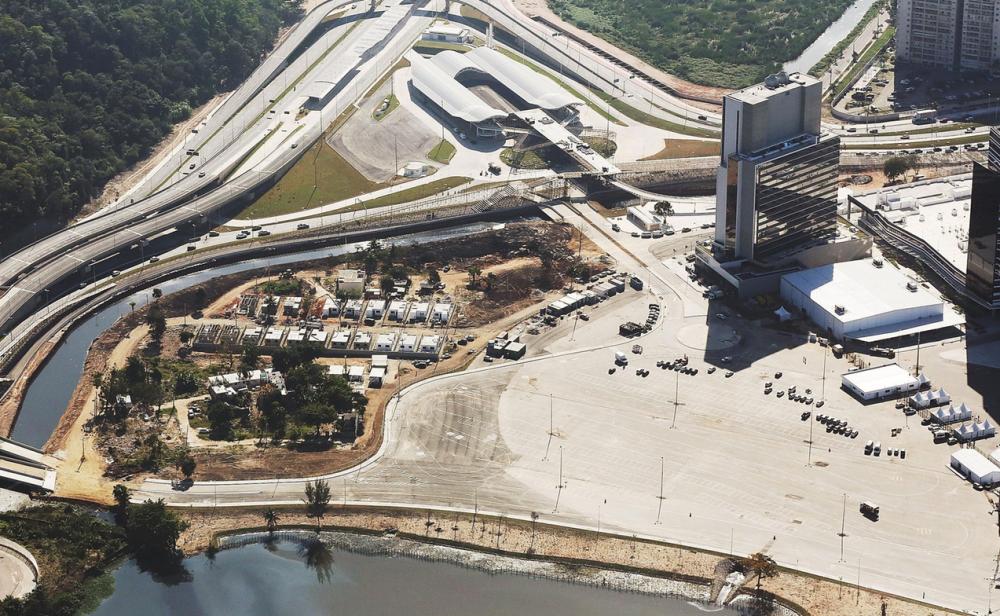
The Games are exhausting Brazil’s development reserves
While politicians are working hard to convince the world that Rio can and will succeed as a host for the Olympics, their eagerness for international recognition is leaving them ignorant towards the needs of local poor communities. The Games are exhausting Brazil’s development reserves, in terms of both money and political attention.
In the light of preparing for the Games, the same red flags have risen that always make it first in line into development reports on Brazil. Segregation and violence are significant problems, particularly in Rio, but the city is doing itself a hindrance by hoping to fix these issues along the way for the Olympics.
The promotion of peace and universal values by the Games becomes uneasy in the wake of reports indicating police violence and forced evictions. The mayor of Rio insists that never before has there been so much transformation for the poor, but the authorities are also rushing with temporary solutions merely to safeguard the Games. The result could mean one step forward and two steps back for Brazil,
Karen Laanem, University College London, UK
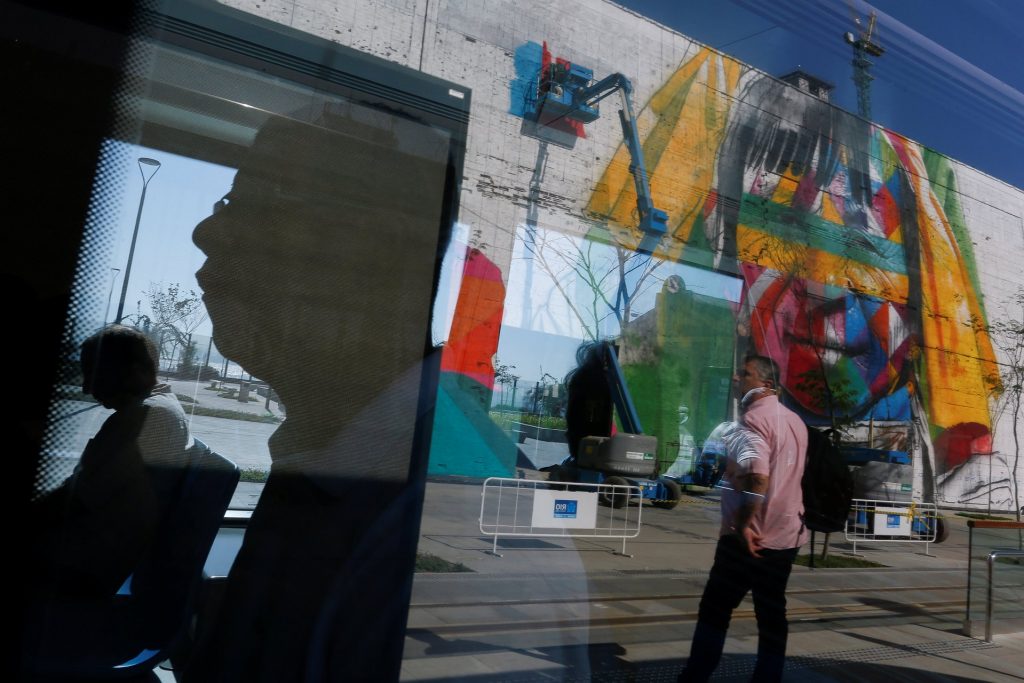
Photograph: Bruno Kelly/Reuters
Now we can see the dark side of the Games for Rio
I’m torn between the positive and the negative aspects of the Games on Brazil’s development.
First, I thought this mega event would be a great opportunity for a country in need of a boom for its culture, its economy.
But now that the fantasy has gone, we can see the dark side of it. It would have been great if this project had included the population, creating jobs or improving living conditions. But it seems that the government prefers to cover all the “ugly” bits of Brazil instead of deeply changing what is wrong.
So for me the Games is more a waste of money than a real opportunity for Brazil. Let’s be honest – this kind of event doesn’t prevent the authorities from investing in education, health … But with all this expenditure, how will the government find the money for the real people who need it? Furthermore, it is obvious that most of the population won’t be able to enjoy the Olympics because they cannot afford it, so what’s the point?
Alexiane Iten, Skema Business School, Lille, France
